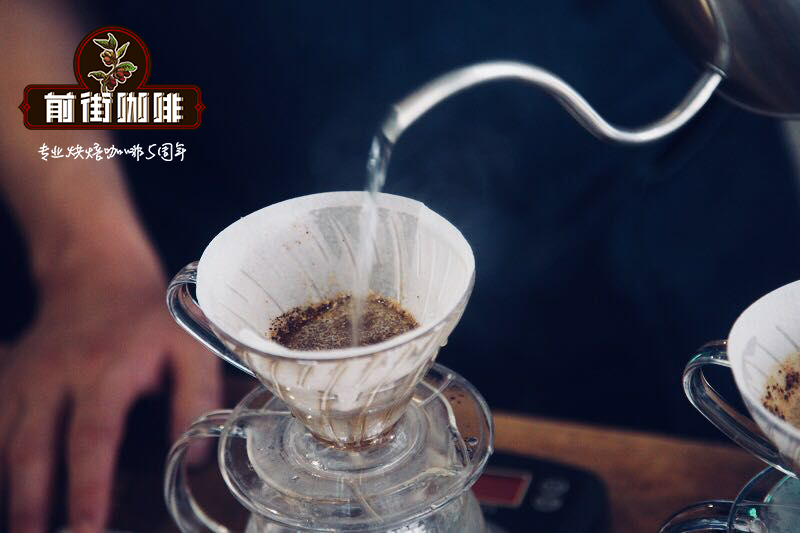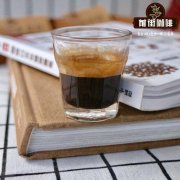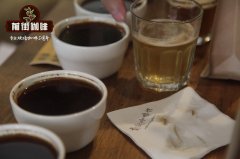Peru Organic & Fair Trade Certification organic FTO | washing of Norandino Cooperative in the Northern Highlands

Professional coffee knowledge exchange more coffee bean information please follow the coffee workshop (Wechat official account cafe_style)
Peru Organic & Fair Trade Certification organic FTO | the flavor of washed beans from the Norandino Cooperative in the Northern Highlands?
Peru is the place of the ancient Inca empire, covering an area about 35.7 times the size of Taiwan, stretching along the Antilles, the highest peak in South America. At that time, 180 people from Spain entered the world-famous Golden City in 1533 and returned to Spain with plundered and rich gold. Coffee was introduced and grown in the 18th century, and the Andes stretched across Peru, covering an area of about 3 gamma and 4. Peru, located in South America, covers an area of more than half of Central America and is the source of the Amazon. Peru has a population of about 28 million, of which more than 200000 small farmers grow coffee, with an average planting area of less than 2 hectares. Coffee is grown along the eastern side of the Andes, with a height of 1,200 meters.
Peru is dominated by small farmers, each with less than two hectares of land and produces about 3000 pounds of coffee per hectare. Organic cultivation has a long history and is quite common in Peru. The main reason is that farmers here have opportunities or capital investment in chemical fertilizers, pesticides and herbicides. But in recent years, due to climate change, coffee leaf rust has spread in various countries, because of organic cultivation, but also caused a massive reduction in Peruvian coffee production. Peruvian coffee trees are planted in high altitude areas, mainly Arabica varieties. Under the slow mature growth, the density of beans here is higher, and the flavor changes a lot.
Annual output of about 3 million bags, Arabica coffee, all for washing treatment, mainly exported to the United States and Germany. Up to 98% of Peruvian coffee is grown in forest areas, most of which are produced by small farmers. Most Peruvian coffee is grown under natural conditions, and local farmers have little money to buy chemical fertilizers and pesticides, which is why almost all the locally produced coffee is organic beans. It is currently the third largest exporter of coffee in South America and the ninth largest exporter of coffee in the world. Coffee varieties are Typica,Bourbon,Cattura, Pache.
The Organic & Fair Trade Certification of the Nolandino Cooperative in the Northern Highlands of Peru is a cooperative formed by a collection of nearby local small farmers in the northern highlands. The Nolandino Cooperative (Norandino Coop) is made up of 6600 small coffee farmers located in the foothills of the western slopes of the Andes in Peru. Each coffee farmer owns only an average of 1.8ha of small agricultural land, with an average altitude of 1200 meters. Fair Trade is the second largest customer of the cooperative. The cooperative was founded in 1995, named the Central Piurana de Cafetaleros (CEPICAFE), obtained Fairtrade certification in 1996, and changed its name to Norandino in 2014. Its former management class and members are the same.
Fair trade covers many industries and demands the whole industrial chain, from the producers at the source, the traders and road dealers who handle the goods in the middle, to the consumers at the end, the actions of every link should be in line with the principle of fairness and impartiality. therefore, it is not easy to obtain fair trade certification, such as allowing farmers to have a reasonable income, farmers' farming should be environmentally friendly, and traders should let farmers have a reasonable income. Can help improve their lives. Wait, you need to meet a lot of specifications in order to be certified. If they can have a better and better quality of life, farmers will pay more attention to the sustainability of the environment and industry.
In the past, when farmers in equatorial countries in South America wanted to expand their acreage to increase their income, they cut down the rainforest directly without thinking, causing the Amazon's primitive rainforest to disappear 750000 square kilometers since the 1970s. For the sake of sustainable forest, the current planting will no longer cut down the original forest, but will instead plant coffee trees in the shade. At present, more than half of the coffee in Peru is shaded, which can not only sustain the rainforest, but also improve the quality of coffee.
Starting from Europe and the United States, the consumer market's concept of environmental protection awareness, social justice, and personal health has become popular. at present, there is a huge demand in the world organic market, and Peruvian small farmers who seriously manage all kinds of organic agricultural products. the sky is getting wider and wider. The Peruvian government understands that organic agriculture is self-serving, and plans supporting measures in addition to encouraging small farmers to form associations or cooperatives. Peru is now the fifth largest exporter of organic agriculture.
Name: Norandino Cooperative in the Highlands of Northern Peru
Country: Peru (Peru)
Producer: collection of local small farmers
Certification: organic & Fair Trade Certification (organic & FTO)
Flavor features: nuts, caramel sweetness, smooth cream, mild freshness, balanced taste.
Coffee flavor features: nuts, caramel sweetness, smooth cream, mild and fresh, balanced taste.
Qianjie recommended cooking:
Filter cup: Hario V60
Water temperature: 90 degrees
Degree of grinding: small Fuji 3.5
Cooking methods: the ratio of water to powder is 1:15, 15g powder, the first injection of 25g water, 25 s steaming, the second injection to 120g water cut off, waiting for the powder bed water to half and then water injection, slow water injection until 225g water, extraction time about 2:00
Analysis: using three-stage brewing to clarify the flavor of the front, middle and back of the coffee. Because V60 has many ribs and the drainage speed is fast, it can prolong the extraction time when the water is cut off.
Important Notice :
前街咖啡 FrontStreet Coffee has moved to new addredd:
FrontStreet Coffee Address: 315,Donghua East Road,GuangZhou
Tel:020 38364473
- Prev

Kuka producing area of Colombia | Inza Kaddura and Colombia species of water-washed scaffolding in Yingzu Village
Professional coffee knowledge exchange more coffee bean information please follow the coffee workshop (Wechat official account cafe_style) Colombian Kuka producing area | Yingzu village Inza Kaddura, Colombia kinds of water-washed scaffolding sun flavor? Yingsha Village is located in the central mountain range of Cordillera, about 100km northeast of Popayan and 30 km west of Monserrate.
- Next

The western province of Rwanda | Moncheha processing plant & Mushoi processing plant collaborative batch | Solar treatment bourbon
Professional coffee knowledge exchange more coffee bean information please follow the coffee workshop (Wechat official account cafe_style) the western province of Rwanda | Moncheha processing plant & Mushoi processing plant collaborative batch | what is the flavor of sun-treated bourbon? Rwanda is a fast-growing boutique coffee producing country in East Africa, and the quality of its boutique coffee has improved rapidly. This batch of coffee beans is selected from Mushony
Related
- Detailed explanation of Jadeite planting Land in Panamanian Jadeite Manor introduction to the grading system of Jadeite competitive bidding, Red bid, Green bid and Rose Summer
- Story of Coffee planting in Brenka region of Costa Rica Stonehenge Manor anaerobic heavy honey treatment of flavor mouth
- What's on the barrel of Blue Mountain Coffee beans?
- Can American coffee also pull flowers? How to use hot American style to pull out a good-looking pattern?
- Can you make a cold extract with coffee beans? What is the right proportion for cold-extracted coffee formula?
- Indonesian PWN Gold Mandrine Coffee Origin Features Flavor How to Chong? Mandolin coffee is American.
- A brief introduction to the flavor characteristics of Brazilian yellow bourbon coffee beans
- What is the effect of different water quality on the flavor of cold-extracted coffee? What kind of water is best for brewing coffee?
- Why do you think of Rose Summer whenever you mention Panamanian coffee?
- Introduction to the characteristics of authentic blue mountain coffee bean producing areas? What is the CIB Coffee Authority in Jamaica?

